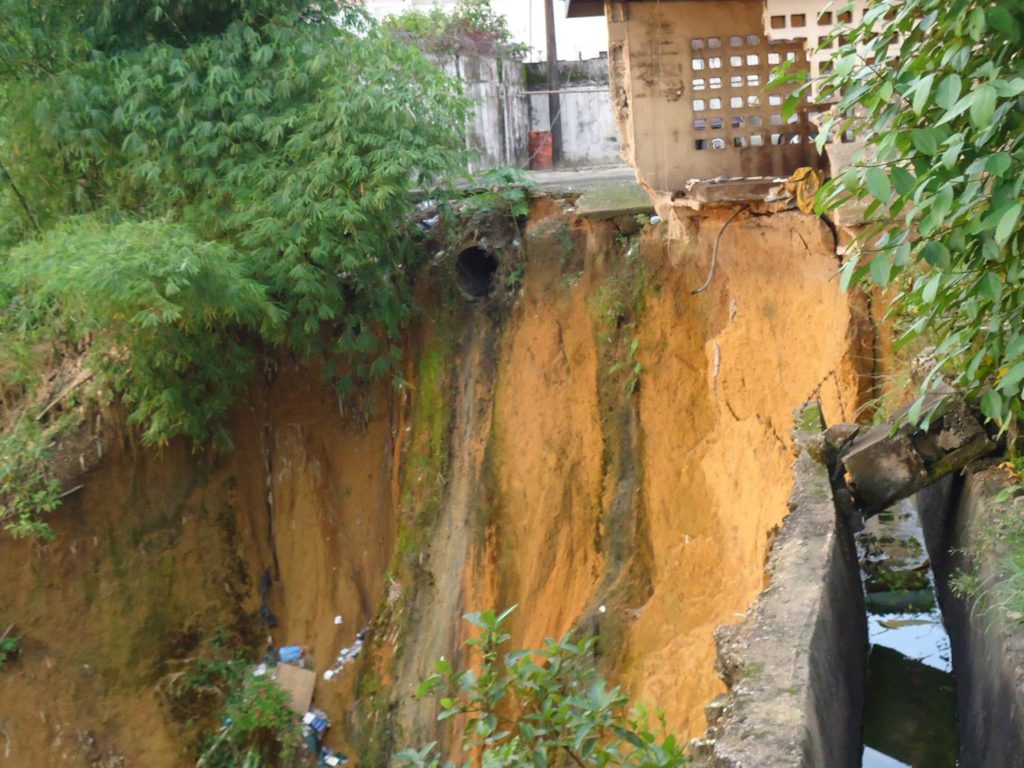An environmentalist, Prof. Francis Okeke, has reiterated the need to urgently attend to erosion sites in Nigeria to reduce environmental damage and high funding cost.

Okeke, a former Dean, Faculty of Environmental Studies, University of Nigeria, Nsukka (UNN), made the submission while speaking to newsmen in Aba, Abia State on Wednesday, December 18, 2019.
He said delay in attending to gully erosion could lead to much damage to the environment and high funding cost which the nation might not afford under the current economic situation.
The don said changes in weather conditions were increasing the rate of damage and that urgent attention should be paid to erosion sites to reduce damage and cost.
According to him, the effect of gully erosion to human habitat and agricultural investments required that government employed both natural and mechanical means to check it effectively and on time.
“Delay to checking erosion sites makes it more complex and leads to rapid degradation of the soil.
“It also leads to increase in project funding. If gully erosion is developing in an area of about 100 square metres, and there is no intervention, it may increase to 10 square kilometres.
“The money for intervention will rise astronomically and the damage may be too high to control,” he said.
Okeke, a professor of Geo-informatics and Surveying, explained that government could apply the natural method of erosion control which included planting of bamboo and cashew trees.
He said the mechanical method of managing erosion could also be applied where funding was available for such projects to check sites that required urgent remedies.
He added that soil types, topography and drainage systems were among the causes of gully erosion in Abia and other parts of the South East, Nigeria.
Okeke called for proper research in both the affected and non-affected erosion areas to find lasting solution.
“To find lasting solution to erosion menace in Nigeria, there is need for research because you cannot just point to a place and say it will be affected or not because every place in Nigeria has its soil type,” he said.
He also called for proper drainage system in new and developing areas to avoid erosions caused by humans.
By Ijendu Iheaka
